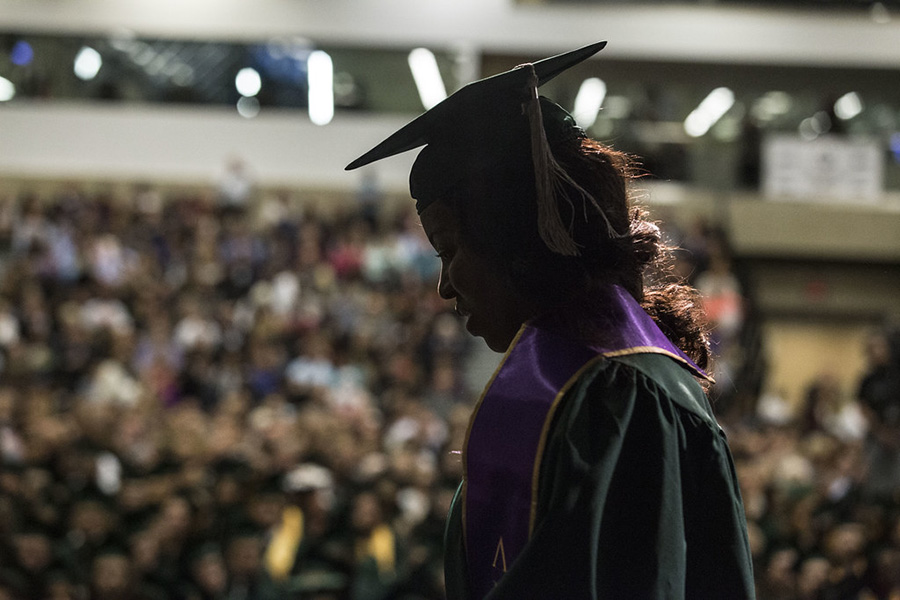Opinion: College tuition points to hypocrisy of ‘the land of opportunity’
Photo via Flickr (COD Newsroom) under Creative Commons license
Graduating high school and college should be something that makes students feel accomplished and ecstatic for their now brighter future. Sadly, many also begin to realize the years of debt that they have accumulated. A free college education will ensure that these graduates have a truly positive future ahead of them.
For as long as I can remember, I have heard, seen, or read about the insanity that is college tuition.
My first memory regarding this topic happened a few years after I moved to the United States — my parents had heard from neighbors that they needed to start creating a college fund for their eight-year-old daughter.
This seemed completely unnecessary to them. Both my parents come from countries that have free college. They did not think much of it because of my age and all the years I had to go before I would start worrying about college.
Now here I am, a high school senior, about to enter college with a growing dread about the inevitable amount of debt that I am going to be in within the next few months.
I am not alone. 44.7 million other Americans are suffering from student loan debt, which has now reached a staggering $1.6 trillion. Every year, that number continues to rise.
The cost to go to college in this country is not only extremely unfair, but ridiculous. With the exception of community colleges, universities take complete advantage of young adults wanting to further their education and better their future.
The 2018 Education at a Glance reports that American colleges are more expensive than nearly every other country on earth. For a country that is known as “the land of opportunity” that seems like a pretty hypocritical statement.
How can this be seen as a country with endless opportunity if furthering one’s education either means being rich enough to pay for it, drowning in debt at the very beginning of adulthood, or simply not going at all?
Lower-income and even middle-class citizens suffer from these incredulous and unaffordable costs. Yes, things such as scholarships, FAFSA, and loans exist. However, even those are not attainable for everyone.
What happens to the lower-income students who struggled to get through school because they were busy working multiple jobs, had to help out their family, or had other serious issues that deprived them of getting the best grades?
Yes, some scholarships can help with even situations like that, but unless they miraculously gain multiple, extremely competitive and selective scholarships, they will still not be able to afford the price of many college tuitions and will still end up in debt.
Yes, FAFSA exists, but, once again, unless they decide to go to a community college, these students will still end up with a considerable amount of money to have to pay even years after they have graduated.
Student loans are yet another problem. They may sound reasonable in the beginning, but what many people do not realize is that this is still debt they are accumulating.
“Students don’t understand the loans they’re taking on and colleges see no reason to educate them on the risks of their debt,” North State Journal writer Jenna Robinson said.
The costs of housing, meal plans, and textbooks are understandable, but colleges charging thousands of dollars just for the education is where things get unreasonable. K-12 public schools come with no cost, and public universities — the next step in education — should also follow that.
How can a society that thrives off of the importance of furthering one’s education make it so difficult for students to afford college?
If other countries can recognize the power in giving their citizens a free education, then the American government should be able to do the same thing.
Opinions expressed in editorials are those of the writer(s). These views may not represent the adviser, The Prowler, advertisers/sponsors, the Starr’s Mill High School administration or staff , or Fayette County Public Schools as a whole. Please see our FAQs for more information pertaining to the rights of The Prowler’s staff members.


